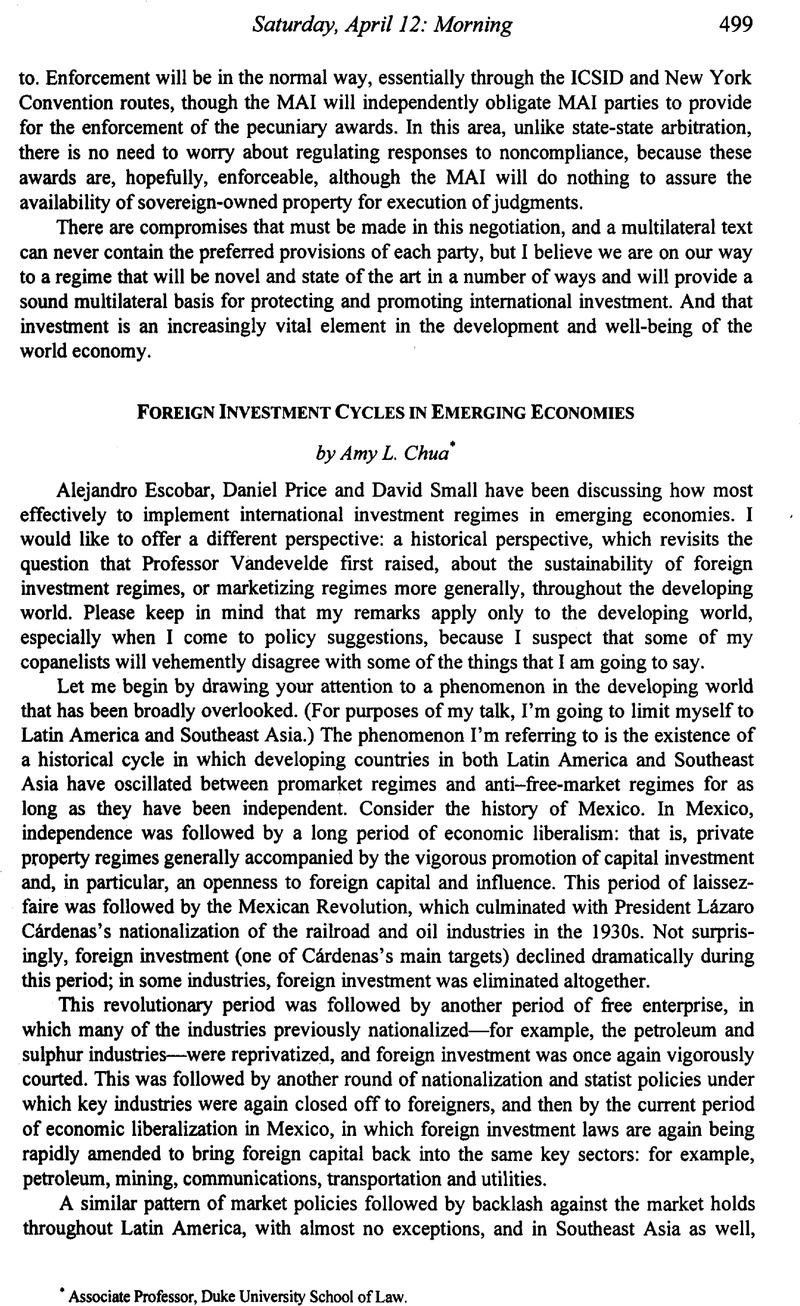No CrossRef data available.
Published online by Cambridge University Press: 28 February 2017

1 Chua, Amy L., The Privatization-Nationalization Cycle: The Link between Markets and Ethnicity in Developing Countries, 95 Colum. L. Rev. 223 (1995)CrossRefGoogle Scholar.
2 See Magnus Mörner, Race Mixture in the History of Latin America 54 (1967).
3 See Chua, supra note 1, at 276-77.
4 Pike, Fredrick B., The Problem of Identity and National Destiny in Peru and Argentina, in Latin American History 182 (Pike, Fredrick B. ed., 1969)Google Scholar; Mörner, Magnus, The Andean Past 205 (1985)Google Scholar.
5 Not surprisingly, in more Europeanized Latin American countries with smaller Indian populations (for example, Argentina, Chile and Uruguay), the internal foreigner tends to be defined in class-based terms. Even in these countries, however, nationalizing leaders have sought to harness ethnicity and the resentment it generates in ingenious ways. Chua, supra note 1, at 277-79.
6 Thomas Sowell, Migrations and Cultures 176 (1996); see Pura, Raphael, Technology Guru Stands Out in Indonesia, Wall St. J., Nov. 21, 1994, at B6DGoogle Scholar.
7 DePalma, Anthony, Mexico Sells off State Companies, Reaping Trouble as Well as Profit, N.Y. Times, Oct. 27, 1993, at AI, A8 (quoting Alvaro Cepada Neri)Google Scholar.
8 See David Scanlan, U.S. Companies Used Pesticides Banned at Home, S.F. Chron., Mar. 15, 1994, at Al.
9 See Final Prospectus of Teléfonos de México, S.A. de C.V. 37-38 (May 11, 1992).
10 See Chua, supra note 1, at 292-303.